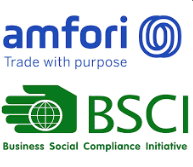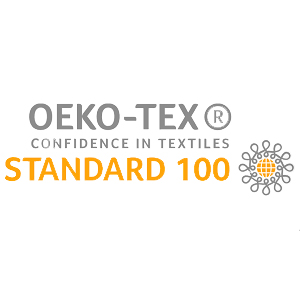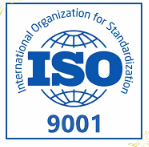What Sustainable Practices Are Implemented by Shapewear Manufacturers?
What Sustainable Practices Are Implemented by Shapewear Manufacturers?
Introduction
In recent years, there has been a growing concern about the environmental impact of various industries, including the fashion industry. Shapewear, a popular undergarment that helps individuals achieve a desired silhouette, is no exception. Shapewear manufacturers have increasingly realized the need to implement sustainable practices to minimize their carbon footprint. In this article, we explore the various sustainable practices embraced by shapewear manufacturers to create a positive impact on the environment.
1. Material Selection: Embracing Eco-Friendly Fabrics
One of the primary ways that shapewear manufacturers are implementing sustainable practices is through the careful selection of materials. Traditional shapewear often utilized synthetic fabrics such as nylon and polyester, which are known to be non-biodegradable and contribute to environmental pollution. However, many manufacturers are now opting for eco-friendly fabrics like organic cotton, bamboo, and recycled materials.
Organic cotton is grown without the use of harmful pesticides or fertilizers, reducing the ecological impact of its production. Bamboo, on the other hand, requires less water and land to grow compared to traditional textiles and has natural anti-microbial properties, making it an ideal eco-friendly fabric for shapewear. Manufacturers are also turning to recycled materials, such as recycled nylon or polyester, which minimizes waste and reduces the utilization of new resources.
2. Dyeing and Printing: Embracing Non-Toxic Techniques
The dyeing and printing processes in the fashion industry are notorious for their adverse impact on the environment and human health. To mitigate this, shapewear manufacturers are adopting non-toxic dyeing and printing techniques. Conventional dyeing methods often involve the use of harmful chemicals and excessive amounts of water, leading to pollution of water bodies. To combat this, manufacturers have started using low-impact dyes that require less water and do not include toxic substances such as heavy metals.
Additionally, digital printing techniques are gaining popularity due to their reduced water and energy consumption compared to traditional screen printing. This shift towards non-toxic dyeing and printing methods not only benefits the environment but also promotes the health and safety of workers involved in these processes.
3. Energy Efficiency: Implementing Renewable Energy Sources
Reducing energy consumption and transitioning to renewable energy sources are key sustainable practices being implemented by shapewear manufacturers. Energy-intensive processes, such as fabric production, sewing, and packaging, contribute significantly to a company's carbon footprint. Manufacturers are investing in energy-efficient machinery and optimizing production processes to minimize energy consumption.
Furthermore, some manufacturers are adopting renewable energy sources, such as solar or wind power, to fulfill their energy needs. By transitioning away from fossil fuels, manufacturers can significantly reduce greenhouse gas emissions and contribute to a cleaner environment.
4. Packaging and Waste Management: Adopting Sustainable Solutions
Packaging is an essential aspect of the shapewear industry, from shipping products to the end consumer to retail display. However, traditional packaging materials like plastic bags and excessive wrapping contribute to the global plastic waste crisis. To address this, manufacturers are embracing sustainable packaging solutions.
Biodegradable and compostable materials, such as plant-based plastics and recycled paper, are being increasingly used for product packaging. Intelligent design choices, such as minimizing excess packaging and using recyclable materials, help reduce waste produced throughout the supply chain.
Additionally, some manufacturers have implemented take-back programs, allowing customers to return used shapewear for recycling or upcycling. These initiatives not only reduce waste but also encourage customers to engage in sustainable practices themselves.
5. Ethical Manufacturing: Ensuring Fair Labor Practices
Sustainability extends beyond environmental considerations to encompass social responsibility as well. Shapewear manufacturers are focusing on ethical manufacturing practices to ensure fair wages, safe working conditions, and workers' rights. This includes vetting suppliers to ensure compliance with labor standards and supporting fair trade initiatives.
By addressing ethical concerns, manufacturers contribute to creating a more sustainable and socially just supply chain, benefiting both the workers and the environment.
Conclusion
Shapewear manufacturers are embracing sustainability as a core principle, recognizing the urgent need to minimize their impact on the environment. The adoption of eco-friendly materials, non-toxic dyeing and printing techniques, energy-efficient practices, sustainable packaging, and ethical manufacturing are some of the sustainable practices implemented by shapewear manufacturers. With these initiatives, the industry moves towards a more sustainable future, offering consumers eco-friendly options without compromising style or functionality. By making conscious choices, shapewear manufacturers set an example for the fashion industry as a whole, encouraging others to follow suit and contribute to a greener planet.
looking for the best deal while getting a quality is usually the number-one objective for most sling lingerie manufacturer.
Serving others for customers a better life with full cup Bra for employees respect and opportunity.
The best way to determine the ideal strategy of custom swimsuits is to continually test and refine your selling and marketing tactics.
People tend to want what they perceive they cannot have. Making LADYMATE seems exclusive or as if it will go out of stock if they don't act quickly often makes it more enticing to the consumer and increases the likelihood that they will buy in.
Overall, lingerie suppliers may be a great way for manufacturers to expand their use of technology, but the price could present a significant hurdle for some businesses.












